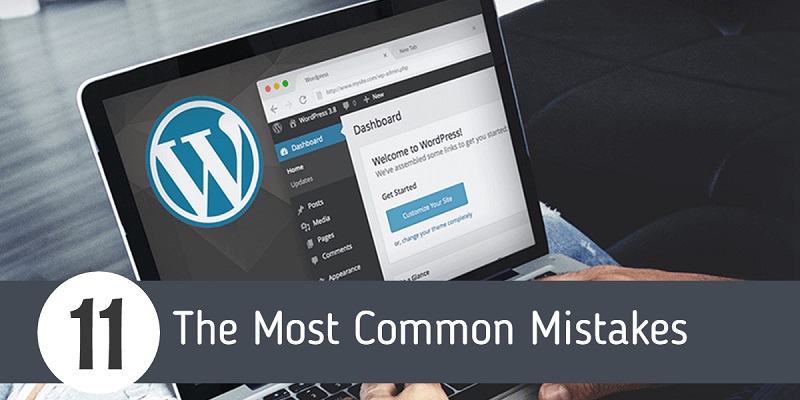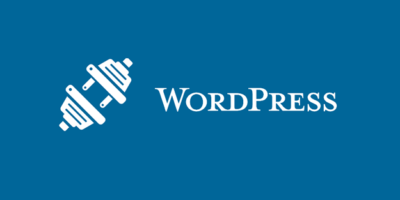Do you know there’s one common trait, which we all humans share altogether? No guesses? Let me tell you that one trait is “making mistakes.”
Nevertheless, it is not a bad thing at all! There’s one quote that will make you believe so.
“To err is human, and to forgive is divine.”
This saying is sufficient enough to make you believe that making mistakes is obviously not a crime. We all humans make mistakes and none of us who is entirely perfect. Be it any real-life situation or about building a WordPress website, we humans make mistakes everywhere. To make mistakes is not a sin at all, but not learning from those mistakes and making them happen again and again certainly is.
Everyone should learn from such mistakes, whether it is made by you or someone else. However, learning from your own and other’s oversights is undoubtedly the road you must proactively follow.
INTRODUCTION
Whenever it happens to the WordPress arena, the central aim of possibly every developer is to set everything up and get the things settled up as soon as it could. In this hurry-burry, there are a lot of things which probably get overlooked, thereby leading to the numerous vulnerabilities which later on affect the website (in different terms) in the long run.
In this section, I have highlighted 11 of the most common mistakes which mostly every WordPress Developer makes in the beginning (sometimes in later on cases as well.) The central goal is to let you people know about those things to ensure you are not repeating the same ones.
Hopefully, all of you will consider these points and bypass similar blunders and make their WordPress website faster, better, secure, and probably more successful.
#1 USING OUT OF DATE PLUGINS/THEMES
Well, being open-source is one great thing for people looking out for numerous choices; it is one bane too for WordPress developers. However, there are innumerable options for themes and plugins accessible to you; obviously, not all of them are created equally. While there are some plugins/ themes built by experienced WordPress developers who have been there from the initial starting. Basically, there are continually updating their plug-ins, ensuring it is stable and secure.
On the other side, there are a few who create these plugins and themes and then never consider updating them. You must have an eye on such plug-ins as using them can lead to the security vulnerability for your website. Else it could also make your site more prone to breaking than one that practices well-maintained and updated plug-ins.
Don’t Miss-
Take the Driver’s Seat: How to Edit WordPress Source Code
30 Free WordPress Themes for Creating Visually Dazzling Websites
#2 NOT BACKUPING UP WEBSITES REGULARLY
Back-ups are indeed important. It is insurance for your website in case of any unforeseen event. Maybe you are someone who thinks all is going great, and it will remain the same in the long run, but that’s completely wrong. Things can go sideways at any time, and possessing some contingency plan can save you & business from such uncertainty.
It is essential to back up a site frequently to evade going towards a cliff. Because if you are backing up the website, you will surely have nothing to bother for; however, if you aren’t, you will be in trouble. Well, creating back-ups manually is undoubtedly a complicated process, so in such a case, consider going with a hosting provider who helps you create back-ups automatically. Aside from generating a database and website backups, you can automate the entire process with some professional assistance.
#3 OPTING FOR SHODDY, SIMPLE HOSTING FOR YOUR WP
Opting for reliable hosting for your WordPress website is essential. No matter if WordPress can leverage a lot in terms of support, it’s eventually a developer or a hosting platform that could save site when something unexpected happens with your self-hosted WordPress website. Shoddy, poor-quality hosting will indeed frighten the performance, data, and security of your site.
An effective hosting provider can actually make an immense distinction and can make your complete experience a lot simpler—mainly when it happens to have the site running well.
#4 USING THE WRONG PLATFORM
The most liberal mistake developers make when beginning out is picking the erratic blogging platform. Primarily, there are two models of WordPress. At first, there is WordPress.com – a blog hosting service, & then there is WordPress.org – a leading self-hosted WordPress platform (used by many and many people).
You must go with the self-hosted WordPress.org since it delivers you the complete access to all the (out of the box) characteristics you require.
#5 NOT INSTALLING UP AN SEO PLUGIN
Do you want your business to be known by all your target audience? If yes, then don’t you even consider ignoring the Search Engine Optimization approach. The integration of the right business keywords in the right place can really affect the ranking of your website.
There are many themes present that have already built-in SEO elements; however, in those, you will need to optimize the content. More so, there are many helpful plug-ins for search engine optimization, which, once installed on the website, can help a great deal. With the help of them, one can add the focused keywords and edit the words that are present below the website name on the Google SERPs.
More so, these plug-ins also help in making XML sitemap, which can, later on, help in mapping the site adequately.
#6 OVERLOOKING IMAGE OPTIMIZATION
This is one of the most common yet most acute mistakes we all make. Maximum times we usually forget to optimize images, while publishing an article. Especially, beginners don’t care at all about it. But if you want to make your website work faster, image optimization should be your priority.
By using HD quality images, you can make create a great impact on your website’s speed while well-optimized images can enhance the complete performance of the site in a great way. Therefore, don’t forget to optimize images before incorporating them into the WordPress website.
#7 IMPLEMENTING THE DEFAULT SETTINGS
Differentiabilities and uniqueness are must-have elements in the WordPress website. In a case, if you don’t make any changes in the default settings, of course, nothing unfortunate will happen.
However, it would be best to look at each available option in the setting section and make several changes according to your business. Consider looking at the permalink structure since the standard one seems just like a random collection of letters and numbers.
#8 SWITCHING A WORDPRESS THEME OFTENLY
Surely your website entirely belongs to you, and in this case, you have the complete authority to make whatever change you want. However, changing the site theme frequently may create a bad influence on your brand’s users and customers.
So many plug-ins and themes will gradually slow down the performance of your WordPress website. In addition to this, your likely customers will, too, not be able to associate your business with a specific design if you tend to change in repeatedly.
#9 ADDING CSS & JAVASCRIPT FILES WHEN THEY ARE NOT NEEDED
Having too many HTTP requests will surely make the site load slower hence having a low score in Google Page Speed, thereby directly impacting the search ranking of the brand. This could also lead to JavaScript errors because of plug-in conflicts.
For instance, suppose there could be two plug-ins using a similar jQuery library, which can probably be loaded two times, thereby causing several issues. Certainly, this is the best instance, as jQuery is much commonly loaded on live websites numerous times. It certainly causes because of the poorly written themes and plug-ins.
#10 GETTING TOO COMPLICATED
There is one common and old adage: “always keep it simple” – this applies everywhere, and the same is in the case of WordPress web design as well. Adding unnecessary huge size images, plug-ins, and coding can eventually make your website’s performance weak and slow to crawl.
Now, the question is: how would you know if the site is getting too complicated or not? In order to know this, you need to carry out the constant clean-up and maintenance so that you can get to know how each web page is performing on the search engine. The key is to get rid of all extraneous plug-ins, images, coding, and ensuring that everything is working its best with great efficiency.
#11 HAVING SIMPLY GUESSABLE CREDENTIALS
Once a website is finally up and running successfully, there will always be someone who is going to attempt to rain on your parade. So, you should never plan on using the simple and default passwords; don’t just ever.
If you believe changing the username will not create a distinction, as you will be more susceptive to attacks. There is no disgrace in acknowledging you did not edit your WordPress username and password, but what is necessary is you replace it instantly. Try going with credentials WordPress considers “safe,” and make certain everyone else that has the permission to access your website does the equivalent.
CONTINUOUS IMPROVEMENT
We all make mistakes, and all these mistakes come with an opportunity to better your own self. Presently in 2019, our tech industry is already moving at a greater pace, and there is no single option to do things right away. However, the real mantra is to – practice and learn more to work better than before.
Let me know if you disagree with any of these mistakes mentioned above or think I missed some major ones. Share your opinion in the comments section, and then I’ll get back to you.










Leave a Reply